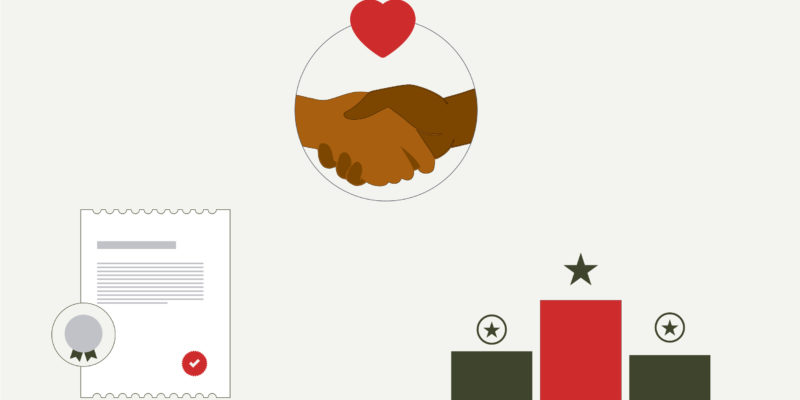Businesses across the world are losing customers and huge sums due to a rise in payment fraud in the last few years. A recent report highlights an alarming 88% global increase in payment fraud between December 2021 and March 2023. In an ever-evolving digital world, payment processing is at the heart of every business transaction. However, each transaction carries significant risks that must be effectively managed and mitigated. Consequently, ensuring robust security in payment processing has never been more critical.
RELATED: Wix Payment Integration as revenue booster for online businesses
With the increasing sophistication of payment fraud, many businesses are becoming targets for hackers and cybercriminals who exploit insecure payment processing systems. These attacks can lead to severe consequences, including financial losses, reputational damage, legal repercussions and a significant loss of customer trust.
This Seerbit blog post highlights the potential risks and consequences of neglecting security in payment systems and emphasises the importance of partnering with a trusted payment solutions provider to effectively mitigate these risks.
Potential Consequences Of Insecure Payment Systems
There are numerous consequences that your business will suffer if you become a victim of fraud due to insecure payment systems. Some of these are discussed below:
- Financial Losses
The lack of strong security measures in your payment systems can leave your business vulnerable to a wide range of fraud, including unauthorised transactions, identity theft, and credit/debit card fraud. These threats often lead to significant financial losses for businesses. A 2023 report by IBM revealed that the average global cost of a data breach has risen to $4.45 million, covering both direct expenses like fines and legal fees, as well as indirect costs such as customer attrition and lost business opportunities.
In 2023, three Nigerian fintech companies lost more than N5 billion to hacking incidents between Q1 and Q3 of the year, while another lost N800 in just one week, according to media reports. These alarming incidents highlight significant vulnerabilities within the security architecture of payment systems.
The rise in security breaches and fraud cases in recent years, along with businesses being compromised through their connections to insecure platforms, underscores the critical importance of secure payment processing. This highlights the need for businesses to partner with a trusted payment solutions provider.
- Reputational Damage
Reputational damage from a data breach or fraud often has a longer-lasting impact than the immediate financial losses. Today’s customers are more aware and concerned about the security of their personal and financial information than ever before.
A single breach can severely undermine customer trust, leading to decreased sales and long-term brand damage. Regaining this trust can be extremely challenging, if not impossible, for many businesses. This loss of customers and revenue underscores why secure payment systems are crucial for business survival and growth.
- Legal Repercussions
Businesses that experience a security breach or fall victim to fraud may face significant legal repercussions, many of which could be avoidable. In cases of payment fraud, affected stakeholders might sue the business, or the business may need to engage in expensive legal proceedings against those responsible.
Additionally, a security breach could indicate non-compliance with industry best practices or current security standards, such as PCI DSS (Payment Card Industry Data Security Standards), potentially resulting in substantial fines and other legal consequences.
How To Secure Your Payment Process And Protect Your Business Against Fraud
The operational disruption that a fraudulent activity or a breach of your security system can cause will lead to a loss of productivity and efficiency, alongside other consequences already discussed in this post. Hence, you should place a premium on securing your payment process and protecting your business against fraud. One of the best ways to achieve this is by relying on a secure payment gateway.
A payment gateway is a technology that captures and transfers payment data from the customer to the acquiring bank. It acts as an intermediary between your business website and the financial institution, ensuring the secure transfer of sensitive payment information. Payment gateways authorise payments for e-transactions, enabling businesses to securely accept credit card payments, digital wallets, and other forms of online payment.
Key Security Features of Payment Gateways
Below are some of the key security features a payment gateway must incorporate to ensure secure transactions:
- Encryption and SSL: Encryption converts data into a secure code to prevent unauthorised access. Secure Socket Layer (SSL) certificates ensure that data transferred between the customer and the merchant is encrypted and secure.
- Tokenization: Tokenization replaces sensitive payment information with a unique identifier or token. This token is used during transactions, keeping the actual payment data secure and reducing the risk of data breaches.
- PCI DSS Compliance: The Payment Card Industry Data Security Standard (PCI DSS) sets security standards for organisations handling credit card information. Compliance with PCI DSS ensures that payment gateways adhere to stringent security measures to protect cardholder data.
- Fraud Detection and Prevention Tools: Advanced tools such as CVV verification, address verification, and AI-based fraud detection systems help identify and prevent fraudulent transactions, safeguarding both businesses and customers.
- Trustworthiness: Ensure that the payment gateway has a proven track record and industry certifications to back up its claims of security and reliability.
When selecting a payment gateway for your business, it is crucial to prioritise these key features before trusting them to process your transactions. A secure payment gateway ensures that your payment systems and processing are secure and insulates your business from fraud and hacking attacks.
Payment gateways lacking these essential features should not be considered for your business.
Benefits of Secure Payment Gateways for Businesses
A secure payment gateway such as SeerBit offers numerous benefits for businesses:
- Enhanced Customer Trust and Satisfaction: A secure payment gateway builds customer confidence, encouraging repeat purchases and fostering loyalty.
- Reduced Fraud and Chargebacks: By minimising fraud-related losses and reducing chargebacks, businesses can protect their revenue and maintain financial stability.
- Regulatory Compliance: Secure payment gateways ensure compliance with legal and regulatory standards, helping businesses avoid penalties and legal issues.
- Competitive Advantage: Prioritising security can serve as a unique selling point, setting businesses apart from competitors and attracting security-conscious customers.
Conclusion
In today’s digital economy, the impact of a security breach or payment fraud can be devastating for businesses. As the digital landscape evolves, so do the risks associated with it, making it crucial for businesses to choose secure payment systems proactively. Secure payment gateways are vital for maintaining both the success and credibility of any business in the modern digital age. By prioritising robust security measures, businesses can safeguard themselves and their customers, build trust, and ensure seamless transactions.
At SeerBit, we are committed to providing top-tier security to protect your business and customer data, while also delivering a smooth and efficient payment experience.
Discover how we can enhance your payment processes today!

































